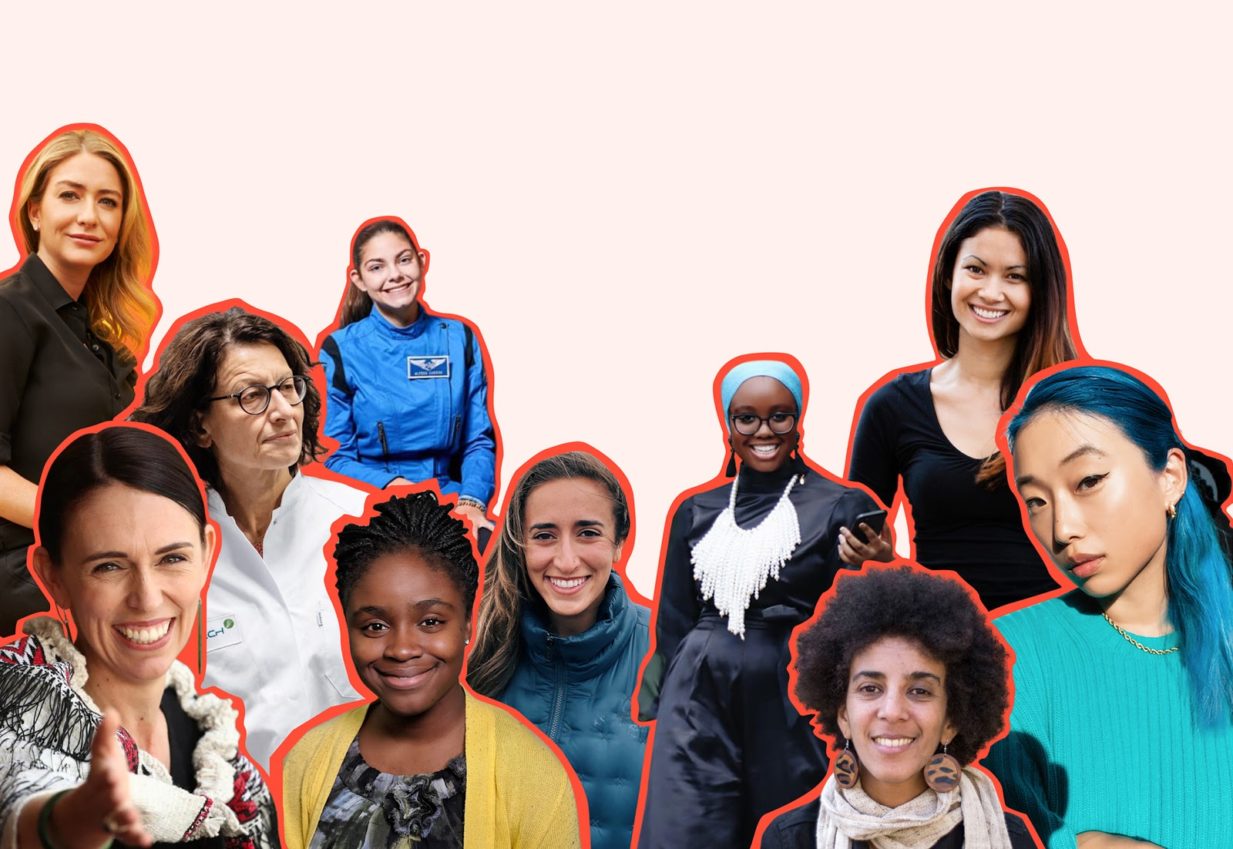The world is desperate for women to step up and take their place. To be represented in boardrooms and beyond. To be appreciated for all they do – in families, in society and in the workplace.
This Women’s History Month, join us in acknowledging today’s female trailblazers. They’re not always the women you see featured in the media. Often they’re everyday women, just like you, quietly doing amazing things.
Take a look at these ten incredible women in tech (and beyond), who are making history as we speak.
1. Whitney Wolfe Herd, CEO of Bumble
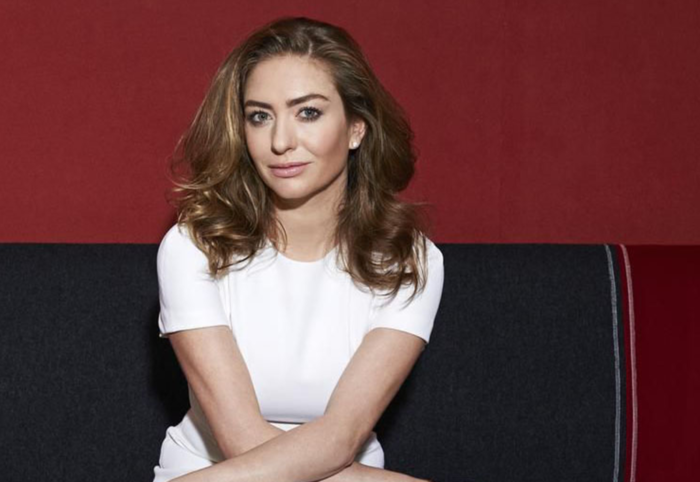
If you haven’t seen the GIF of Whitney Wolfe Herd ringing the Nasdaq bell (to signal her company Bumble going public), then you should check it out. The reason it’s a big deal?
She’s the youngest CEO to ever take a company public
She only the 22nd woman in history to do it
She’s one of only 3 female-founded companies to go public in 2020 (of 559)
She did it all with her 1-year-old son on her hip.
Talk about badass!
Wolfe Herd launched social and dating app Bumble (an alternative to Tinder that allows the woman to make the first move) in 2014. She doesn’t have a STEM degree and she didn’t raise billions in venture capital.
Her achievements send a message to all women that you don’t have to be one type of person to find success in the business world or in the tech industry.
2. Alyssa Carson, aspiring astronaut

We’ve all heard children excitedly declare “I want to be an astronaut when I grow up”, but Alyssa Carson is one of the few who’ve actually followed through.
At only 19 years old, she’s attended every NASA space camp, and was the youngest person to graduate from the Advanced Space Academy – meaning she’s qualified to go to space. She shares inspiring updates about her journey on her website and Instagram feed.
One of a small group of young people positioning themselves to be astronauts in the US’s next phase of space exploration, Alyssa is working hard to make history.
Now that’s one giant leap for womankind.
3. Inioluwa Deborah Raji, Research Fellow at Algorithmic Justice League
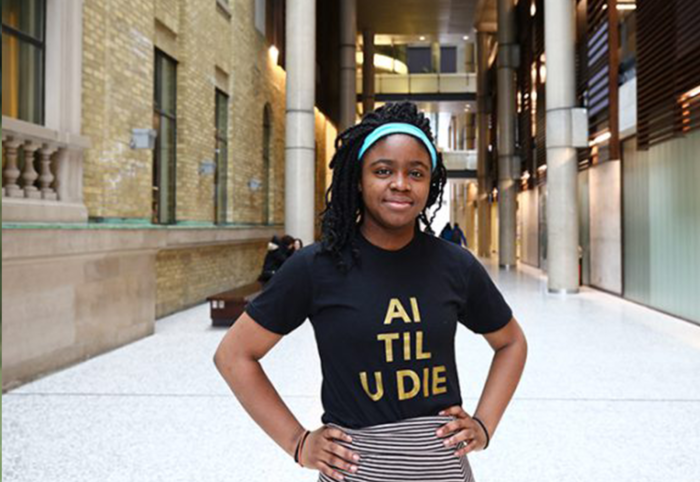
Artificial intelligence (AI) technology is progressing in leaps and bounds across the globe. But it can present unfair disadvantage and bias towards minority groups. Inioluwa Deborah Raji tackles this issue head-on as a star researcher of the Algorithmic Justice League (AJL).
AJL is a non-profit that raises public awareness about the social implications of AI. One of Inioluwa’s major projects as an intern at AJL was working with Under 30 alumnae Joy Buolamwini on an audit of Amazon Recognition’s deployed facial recognition product. Shockingly, they discovered that it was significantly less accurate for darker-skinned women than for white men.
Inioluwa’s research on racial and gender bias in facial recognition services is changing the way huge companies look at inclusion and diversity. Her work is vital to the future of inclusive tech, and we couldn’t be more proud of her achievements.
4. Margaret Zhang, Vogue China Editor-in-Chief

You’d expect a Vogue editor to have decades of experience in publishing and editing. Maybe that was the case 20 years ago, but not in Margaret Zhang’s case. She’s become Vogue China’s youngest editor ever, rising to the position after launching a successful fashion blog when she was 16.
Zhang has come at her career from a refreshingly genuine angle, building her blog and Instagram following (of over 1.2 million) organically. She’s worked as a consultant to brands like Airbnb and Mulberry looking to enter the Chinese market.
She’s paving the way for women and defining new media approaches while proving that age is no barrier to success. Go lady!
5. Özlem Türeci, Chief Medical Officer BioNTech

As the world slowly recovers from the COVID-19 pandemic, a lot of it will be thanks to Özlem Türeci. Upon hearing about the pandemic in January 2020, she pivoted 600 of the staff at her company BioNTech to begin developing a vaccine. This was two months before the World Health Organization had even declared a pandemic.
11 months later, the Pfizer vaccine was ready to go. (For perspective, the previous record for developing a modern vaccine was four years, achieved in the 1960s for mumps.)
Türeci’s Pfizer vaccine is proven to be 95 percent effective, and 1.3 billion doses are to be produced in 2021.
This is a huge feat for any scientist, let alone a female scientist. (Women sadly still make up only 30% of the world’s researchers.)
6. Jacinda Ardern, Prime Minister of New Zealand
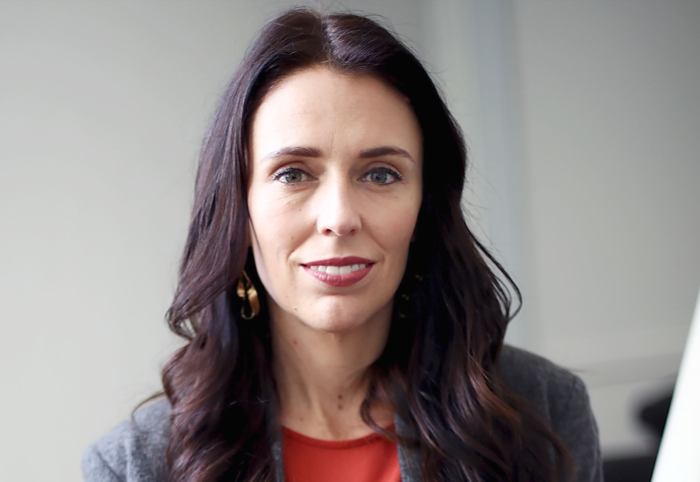
We’re in awe of the example set by New Zealand’s Prime Minister Jacinda Ardern, as both a leader and a mother.
When she was elected Prime Minister in 2017, she became the world’s youngest Head of State at 37 years old. A few months later she announced that she was pregnant, and would take 6 weeks of maternity leave before her partner became a stay-at-home dad.
Ardern leads with action, not just with words. Within a month of the Christchurch Massacre that killed 51 people, she led Parliament to ban most assault rifles and semi-automatic weapons across the country.
Empathetic, authentic, tolerant and kind, Ardern exhibits traits of a new kind of world leader. She might lead from a place of emotion, but she’s decisive and strong in her decision-making. Our governments could use more female leaders like Jacinda Ardern.
7. Melanie Perkins, CEO and Co-Founder of Canva
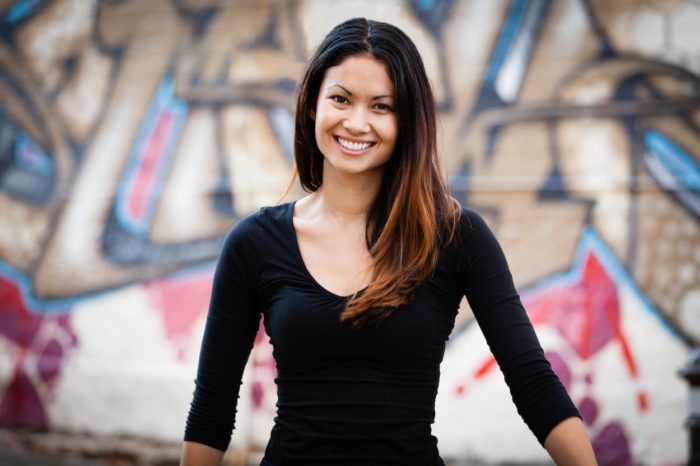
Melanie Perkins is a true trailblazer in the world of tech. Her success started with a simple yet strong idea: to empower the world to design.
In 2013 she founded Canva, an easy-to-use online platform that allows people to create beautiful designs. Canva now serves over 150 million users per month across 190 countries.
And there are more reasons that Perkins is so impressive:
She’s one of the youngest female CEOs of a tech startup valued at over $1 billion.
She’s listed as the third richest woman in Australia.
She runs the company with her husband, proving that love and work can work!
Perkins shows us just how tech can solve problems in every industry. She’s a great example of women leading change in tech.
8. Fareedah Shaheed, Founder of Sekuva
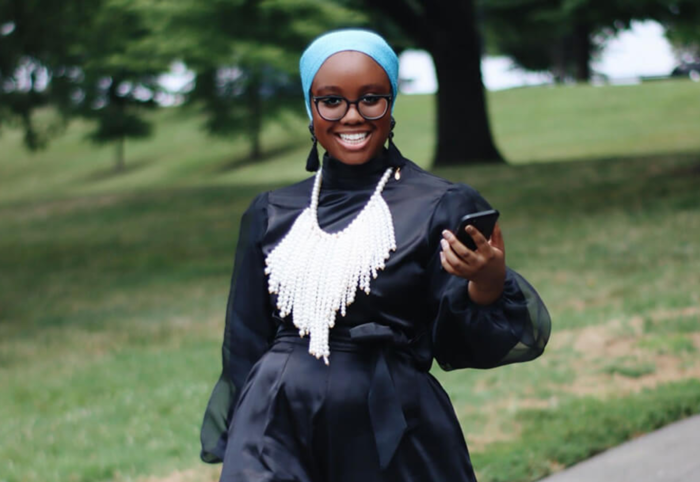
There’s a reason Fareedah Shaheed was recently listed for Forbes 30 Under 30. She’s an expert in cybersecurity and runs a business called Sekuva that teaches online security to non-tech savvy people.
Shaheed really knows her stuff, and recently signed a five-figure contract with a multi-billion-dollar company to provide online security training for its employees on staying safe at work and at home.
In a recent Instagram post she wrote:
“Women in tech exist. Black women in tech exist. Muslim black women in tech exist. You matter and your ideas are greater than they could ever dream of.”
Oh, and she’s read more than 2,000 books in her lifetime. (That alone is worthy of a mention on our list here.)
Check out her Twitter feed for inspiring updates on her career movements, and interesting cybersecurity news.
9. Sarafina El-Badry Nance

Sarafina El-Badry Nance blows us away. She’s a 26-year-old Egyptian-American astrophysicist who’s passionate about women in STEM and women’s health. Here are a few great reasons to get behind this wonderful woman:
She shares her love for astronomy by hosting the TV show Constellations
She’s written a children’s book called Little Leonardo’s Fascinating World of Astronomy (to be released August 2021)
She empowers women to face their health risks by publicly sharing her breast cancer prevention story which involved having a double mastectomy.
She was even one of the 30 women celebrated by Forbes for Women’s History Month. Follow her on Instagram for a regular dose of inspiration (and astronomy facts!).
10. Timnit Gebru
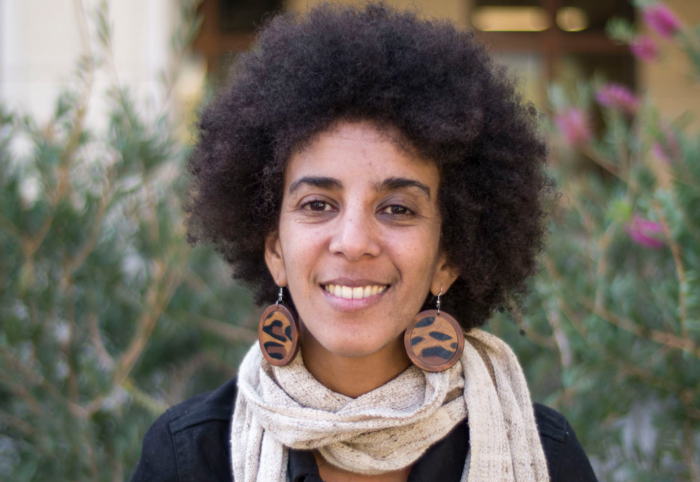
Ethiopian-born Timnit Gebru is an incredibly talented computer scientist who’s worked with the likes of Apple, Google and Microsoft. Her work centers on algorithmic bias and data mining, and she’s passionate about exploring the ethics of AI.
Gebru is a powerful advocate for diversity in technology. She co-founded Black in AI with the aim to increase the presence of black people in the field of artificial intelligence. Gebru’s research and personal career experiences expose a genuine crisis in AI – a corporate and privileged influence that could lead to harmful tech use which requires stronger governance of AI.
Her continued research and work is vital for the future of a digital world. Check out Gebru’s Twitter feed for interesting news and updates.
Now, we invite you to take part. Share your own shout-out to women making history by posting to your social channels and spreading awareness of International Women’s History Month. (And please tag us @girlsintech.global – we love to see your posts!)
